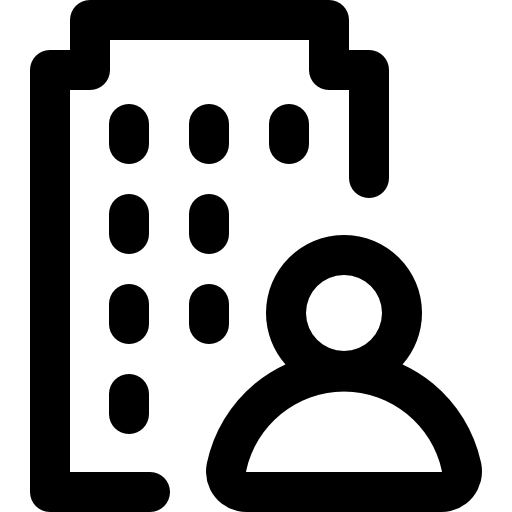
Catalonia reaffirms its position as one of Europe’s top five most digitized regions
Catalan Economy · Tech & Digital Transformation
20 Dec 2023
Catalonia has solidified its technological strength, boasting a digitization index of 63.96%, nearly 12 points higher than the EU average and 1.6 points above its 2021 standing.
Catalonia reaffirms its significant level of digitization and its ongoing progress in digitally transforming both society and the economy. These insights stem from the fourth edition of the Digital Economy and Society Index (DESI Catalonia 2022), conducted for Catalonia using the European Commission's methodology. Led by the Catalan government’s Ministry for Business and Labour and drawn up by the Catalan Technology Circle, the report confirms Catalonia's continuous presence, for the fourth year running, as Europe’s fifth most digitally advanced and pioneering region. With a digitization rate of 63.96%, surpassing the EU average by 11.69 points (52.27%), Catalonia, together with the Nordic group comprising Denmark, Finland, Sweden, and the Netherlands, sustains its leadership in digital development across Europe.
DESI Catalonia 2022, as in the previous edition, covers four dimensions (Human Capital, Connectivity, Integration of Digital Technology, and Digital Public Services), 10 sub-dimensions, and 33 indicators, aligning with the previous edition's structure.
Specifically, in 2022, Catalonia demonstrated positive progress across all dimensions. However, this doesn't always translate to an improved relative position within the 27 EU member states. Catalonia enhances its overall index by 5.69 points, marking growth in all sub-dimensions: Human Capital (+0.51 points), Connectivity (+13.63 points), Integration of Digital Technology (+3.55 points), and Digital Public Services (+5.09 points). Concerning positions, Catalonia slips one place in Human Capital but gains ground in Connectivity and Integration of Digital Technology while maintaining the fourth spot in Digital Public Services.
In terms of Human Capital, internet user competencies continue to rise, albeit with more modest results in advanced and development skills. Data on ICT training and employment (especially among women) slightly surpasses the European average but still has significant room for improvement.
Connectivity remains a strong point and the base of Catalonia's digitization efforts, securing its best position, specifically the second spot, trailing behind Denmark and leading ahead of the Netherlands. Noteworthy is Catalonia's top ranking in fixed broadband and second place in fixed broadband coverage, following Hungary.
Regarding the Integration of Digital Technology, Catalonia moves from the eighth position in 2021 to the seventh in 2022, in front of Ireland. Overall, Catalan businesses exhibit a commendable level of digitization, although the growth in the percentage of e-commerce turnover among small and medium-sized enterprises has stalled, both domestically and internationally.
In Digital Public Services, Catalonia maintains its fourth position. While the digitization level of the public administration in Catalonia progresses annually, there's still room for improvement in user positions within e-government and open data in Catalonia.
About DESI Catalonia
In order to monitor Europe's overall digital performance and track the digital competitiveness progress of EU member states, the European Commission (EC) established the Digital Economy and Society Index (DESI) as the benchmark index for comparing countries' digital advancements in Europe.
This marks the fourth presentation of DESI results calculated for Catalonia in accordance with the EC's methodology, a collaborative effort between the Government of Catalonia and the Catalan Technology Circle. The data has been predominantly sourced from the Statistical Institute of Catalonia (Idescat) and the Directorate-General for Transparency, Open Data, and collaboration with the Ministry for Foreign Action and the European Union.
In 2021, the EC adjusted DESI to reflect the two main policy initiatives that would impact digital transformation in the EU in the coming years: the Recovery and Resilience Mechanism and the Digital Compass of the EU's Digital Decade. Consequently, DESI Catalonia 2021 indicators were structured following the four key areas of the Digital Compass instead of the five dimensions in previous editions (2019 and 2020). The number of indicators reduced from 37 to 33, with some removed and others added.
DESI 2022 maintained the structure of DESI 2021 with 4 dimensions (Human Capital, Connectivity, Integration of Digital Technology, and Digital Public Services), 10 sub-dimensions, and 33 indicators. However, three changes affecting the calculation were implemented: one indicator was removed, one new indicator added, and the calculation methodology for some indicators was modified. Consequently, the DESI index for the years 2020 and 2021 had to be recalculated using the 2022 changes to analyze the evolution from 2020 to 2022.
Discover our services.
-

Setting up your company
See moreCatalonia Trade & Investment assists foreign companies in starting a business in Barcelona-Catalonia.
-

Connecting to local partners
See moreWe connect international companies to key partners to help them set up, succeed and grow in Catalonia.
-

Business Location Service
See moreGet all the information about Barcelona-Catalonia industrial buildings, land, business centers, or office spaces.
Related News and Success stories.
-
24 Feb 2026
See more Catalan Exhibitors at Mobile World Congress 2026Catalan Exhibitors at Mobile World Congress 2026
-
23 Feb 2026
See more The number of startups in Catalonia hits 2,403 in 2025, 5.2% over the previous year, and the highest figure on recordThe number of startups in Catalonia hits 2,403 in 2025, 5.2% over the previous year, and the highest figure on record
-
20 Feb 2026
See more Catalan exports set a new all-time record in 2025 and surpass €100 billionCatalan exports set a new all-time record in 2025 and surpass €100 billion
-
05 Feb 2026
See more Catalonia assumes the presidency of the ECRN, the European Union’s leading chemical industry networkCatalonia assumes the presidency of the ECRN, the European Union’s leading chemical industry network


